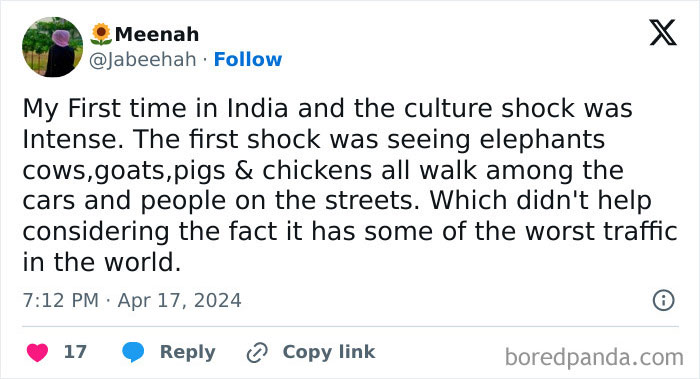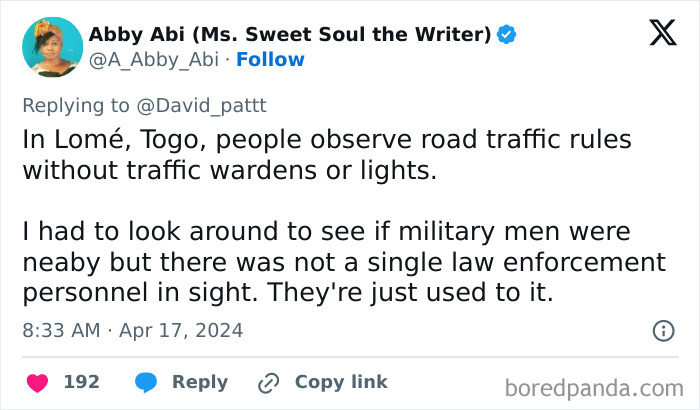The latter is what netizens on X (formerly Twitter) have discussed when one user asked them about the biggest culture shocks they’ve ever witnessed. Quite a few people shared stories of what surprised them the most while immersed in one culture or another, ranging from food to language, to recycling and transportation-related matters. Curious to see what other culture shocks they’ve experienced? Wait no longer and scroll down to find their thoughts on the list below, where you will also find Bored Panda’s interview with Professor at the Department of Geography and Environmental Studies at Wilfrid Laurier University in Waterloo, Canada, Sean Doherty, who was kind enough to share his thoughts on culture shock.
Take food, for instance; something that’s a necessity for everyone in the world can differ quite drastically from country to country. (Even though some cuisines, such as Italian or Chinese, seem to be quite popular outside of the two countries as well.) “In the end, we can say that food functions symbolically as a communicative practice by which we create, manage and share meanings with others,” the study read in part. Gitnux also pointed out that quite a few people are likely to feel reverse culture shock, which stems from coming back to the country of origin after some time abroad. Statistics show that as much as 15% of foreign women in Japan feel said shock upon going back to their homelands. For Prof. Doherty, immersing yourself in different cultures and environments is one of the most important things to do in order to have a fulfilling experience whilst a visitor. “I try to seek these experiences out, be it traveling to markets and residential areas where the locals actually live, or seeking out natural or built environments different than back home. Sticking to tourist areas, or all-inclusive resorts, has limited appeal to me. But it can be challenging to identify these areas, stay safe, and not fall for tourist traps. Having a local friend, relative or guide is invaluable for this.” When in the new country already, working on self-confidence and optimism, accepting new cultures, and seeking social support are the three ways to overcome the psychological discomfort, if any. The aforementioned research also suggested that sometimes the stress caused by culture shock can stimulate one’s passion for cultural learning, which can speed up people’s adaptation to new cultural circumstances. That’s why it might be beneficial to work on trying to minimize said stress rather than eliminating it altogether. Follow Bored Panda on Google News! Follow us on Flipboard.com/@boredpanda! Please use high-res photos without watermarks Ooops! Your image is too large, maximum file size is 8 MB.








































































































